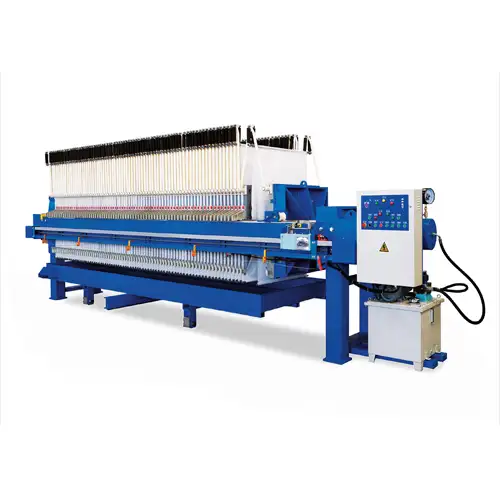How Modern Industries Combat Waste Water Pollution: Strategies, Technologies, and Smarter Filtration Solutions
Nov 26, 2025
Industrial wastewater pollution has become one of the most urgent environmental issues facing global manufacturing today. As governments tighten discharge regulations and industries seek cost-efficient sustainability practices, wastewater treatment has shifted from a passive environmental obligation to a strategic operational priority. Understanding how industrial wastewater pollution forms—and how to control it with advanced filtration technologies—is essential for plant managers, engineers, procurement teams, and decision-makers in every high-output sector.
This article explores the drivers of industrial wastewater pollution, the latest treatment strategies, and the role of high-efficiency filtration technology in enabling cleaner, more compliant, and more cost-effective operations.
What Causes Industrial Waste Water Pollution? Key Sources Across Modern Industries
Industrial wastewater pollution originates from a wide range of production activities, each contributing unique challenges:
- Chemical and Petrochemical Plants – These facilities produce wastewater rich in solvents, hydrocarbons, acids, alkalis, and complex organic compounds. Without proper filtration and neutralization, these effluents can cause critical long-term environmental harm.
- Mining and Mineral Processing – Mining wastewater often contains suspended solids, heavy metals, flotation chemicals, and abrasive slurries. These contaminants require robust solid–liquid separation to prevent groundwater contamination and meet strict discharge criteria.
- Food Processing and Beverage Manufacturing – High-BOD organics, fats, oils, proteins, and sugars create wastewater that is difficult to break down biologically if not pre-treated effectively.
- Textile, Printing, and Dyeing Plants – Large volumes of dyes, detergents, microfibers, and pigments demand filtration systems capable of handling variable loads and fluctuating chemical compositions.
Across all these industries, wastewater filtering plays a crucial role in controlling pollutant discharge and improving plant sustainability. Modern industries increasingly turn to advanced filtration solutions to reduce pollution, achieve compliance, and lower total operating costs.

Environmental and Operational Impacts of Industry Waste Water Pollution
The effects of industrial wastewater pollution extend far beyond environmental degradation. They also create significant operational and financial risks for businesses:
- Environmental Risks: Ecosystem disruption due to toxic pollutants, groundwater and soil contamination, bioaccumulation of heavy metals, and long-term restoration costs.
- Regulatory and Financial Risks: Government fines, increased scrutiny from environmental agencies, reputational damage, and higher operational expenses.
- Operational Impacts: Production delays from wastewater system failures, rising sludge handling costs, increased energy consumption, and loss of valuable materials.
These challenges make it crucial for industries to integrate effective wastewater filtration systems into their production cycles. Modern filtration not only mitigates pollution but also improves process stability and reduces overall operational risk.
Advanced Wastewater Treatment Strategies Industrial Plants Use Today
Industrial facilities use a combination of treatment methods depending on effluent characteristics, regulatory requirements, and business goals. Among the most widely implemented strategies:
- Physical Pretreatment – Includes screens, sedimentation, oil separators, and sand filters to remove coarse solids and floating contaminants.
- Chemical Treatment – Processes such as coagulation, flocculation, pH adjustment, and oxidation prepare wastewater for more efficient downstream filtration.
- Biological Treatment – Used in food, beverage, and chemical industries, biological reactors reduce organic load and stabilize wastewater before final filtration.
- High-Efficiency Solid–Liquid Separation – This stage is where industries achieve the most significant reduction in pollutant load. Advanced filtration technologies—including membrane systems, centrifuges, and high-pressure filter presses—are increasingly adopted for achieving strict discharge standards.
The filtration step is especially important because it determines final effluent quality, compliance status, and sludge handling costs. For many industries, high-performance Jingjin filter press systems deliver the most reliable, scalable, and cost-effective solution for dealing with both organic and inorganic pollutants.
Why Filtration Technology Plays a Central Role in Reducing Industry Waste Water Pollution
Filtration systems are the backbone of efficient industrial wastewater management. Their effectiveness directly determines environmental safety, sludge volume, disposal costs, and resource recovery rates.
- Precision Removal of Suspended Solids: High-quality filtration equipment can remove fine particles, clay, metallic ions, fibers, and chemical residues that escape earlier treatment stages.
- Improved Sludge Dewatering Efficiency: Better filtration means less water in the final sludge, creating major reductions in disposal volume, transportation costs, and environmental risk.
- Enhanced Production Efficiency: Reliable filtration prevents blockages, equipment fouling, and unscheduled downtime.
- Compliance and Sustainability: High-efficiency filtration systems help companies meet regulatory requirements without escalating operational costs.
- Resource Recovery: Industries like mining, metallurgy, and chemicals benefit from equipment that allows recovery of valuable materials during the filtration stage.
The Future of Industrial Wastewater Pollution Control: Automation, Data, and Smart Filtration
Industrial filtration is undergoing a transformation driven by digital technologies and automation. The next generation of wastewater treatment includes:
- Smart Monitoring: Sensors analyzing turbidity, pressure, flow rate, and cake humidity allow real-time adjustments that improve filtration efficiency.
- Automated Filter Press Systems: Auto plate shifting, automated washing, variable pressure control, and real-time diagnostics reduce manual labor and improve operational safety.
- Energy-Efficient Dewatering Technologies: Innovations reduce energy usage while increasing dryness of sludge cake, helping industries lower carbon footprints.
- Sustainable and Recyclable Filter Materials: New materials extend service life, reduce waste, and enhance filtration capacity.
Industries adopting these advancements can expect lower operating costs, fewer compliance risks, and significantly reduced wastewater pollution impacts.
Why Jingjin Is the Trusted Partner for Industrial Wastewater Pollution Control
For more than 30 years, Jingjin has been a global leader in industrial filtration and wastewater treatment solutions. Our systems are engineered to help industries reduce pollutant discharge, improve efficiency, and stabilize long-term operations.
Whether your facility handles mining slurry, chemical wastewater, textile effluent, or high-organic industrial discharge, Jingjin delivers high-reliability solutions that help businesses meet environmental goals and operational demands.
